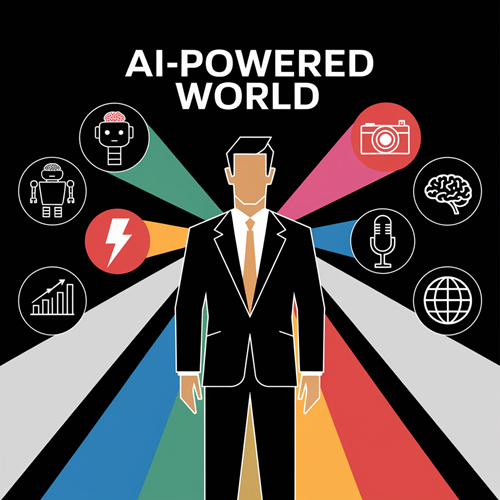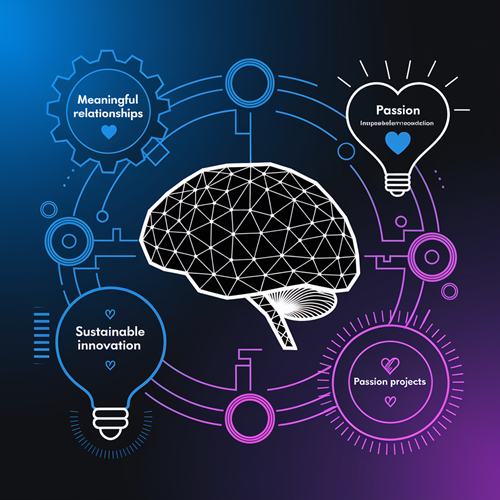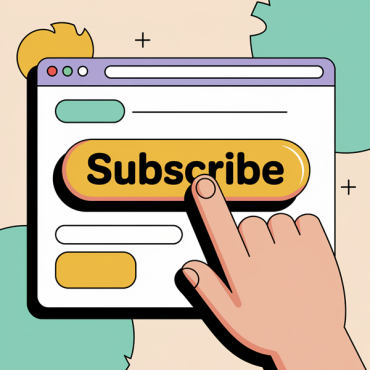
Imagine waking up tomorrow to find your job transformed overnight. Repetitive tasks you once dreaded are now automated, data analysis happens in seconds with tools like Tableau or Power BI, and your role has shifted from executing mundane processes to strategizing bold outcomes. Sounds futuristic? It’s already here. Artificial intelligence isn’t just reshaping industries—it’s redefining what it means to have a career in the 21st century.
From marketers using Jasper AI to craft compelling campaigns to educators leveraging platforms like Khanmigo for personalized learning, AI is no longer a distant concept but an everyday reality.
For many professionals, this shift brings both excitement and anxiety. On one hand, AI offers unprecedented opportunities to innovate, streamline workflows, and unlock new levels of productivity. On the other, headlines warning about “AI replacing jobs” can feel unsettling. But here’s the truth: AI isn’t coming for your job—it’s coming to change how you do it. For instance, graphic designers aren’t being replaced by Canva’s Magic Design; they’re using it to elevate their creativity. Accountants aren’t losing relevance—they’re becoming strategic advisors thanks to automation tools like QuickBooks.
This moment matters because we’re at the tipping point of what experts call “the great convergence,” where AI intersects with every profession. To thrive, you need to act now—by mastering human-centric skills like storytelling, ethical decision-making, and emotional intelligence that machines simply cannot replicate. Start experimenting with accessible AI tools like ChatGPT for drafting emails or Zapier for automating tedious tasks. These small steps not only build confidence but also position you as someone who adapts boldly to change.
The future of work isn’t something that happens to us—it’s something we create. By embracing AI strategically today, you’ll not only survive this transformation but lead it. So why wait? Dive into AI-powered tools, invest in lifelong learning tailored to modern careers, and redefine success on your terms.
We’re living through what experts call “the great convergence”—a transformative era where cutting-edge technologies like generative AI, machine learning, and automation are seamlessly integrating into every industry. In healthcare, platforms like IBM Watson Health are revolutionizing patient care by analyzing vast datasets to predict outcomes. Marketers are using tools like HubSpot’s AI-powered analytics to craft hyper-targeted campaigns that drive real results.

Educators are turning to AI-driven solutions like Duolingo Max, which personalizes language learning for students worldwide. Even engineers rely on Autodesk’s generative design software to create structures faster and more efficiently than ever before.
But let’s be honest—change on this scale feels overwhelming. If you’ve scrolled through headlines warning that “AI will replace millions of jobs,” you’re not alone in feeling uneasy. Yet these narratives often overlook the bigger picture. History has shown us time and again that innovation creates opportunities as much as it disrupts old ways of working. The printing press didn’t destroy literacy; it democratized knowledge. The internet didn’t eliminate jobs—it gave rise to entirely new industries we couldn’t have imagined decades ago.
What makes this moment different is the sheer speed of change. While previous technological revolutions unfolded over decades, AI advancements are happening in months. Consider how quickly ChatGPT went from a niche experiment to a mainstream tool reshaping industries across the globe. This rapid evolution means sitting on the sidelines isn’t an option anymore.
To stay ahead, you need to act fast—but thoughtfully. Start by understanding how AI works within your field. Are there tools like Notion AI or Zapier that can streamline your daily tasks? Can you leverage platforms like MidJourney or Runway ML to bring creative ideas to life? By positioning yourself as someone who adapts proactively, you’ll turn uncertainty into opportunity.
This isn’t just about survival—it’s about growth. Professionals who embrace lifelong learning tailored to modern careers—whether mastering prompt engineering for tools like ChatGPT or exploring ethical considerations in AI deployment—will lead the charge. The future of work won’t wait for anyone. So why hesitate? Dive into the tools and strategies shaping tomorrow, and take control of your place in this AI-powered world. Because when it comes to thriving amidst disruption, preparation is power.

Before diving into strategies, let’s talk about something deeply personal yet universal: fear. Fear of obsolescence runs deep because our careers are so intertwined with our sense of identity. For many, the thought of losing relevance in the workplace feels like losing a part of who we are. It’s natural to feel uneasy when headlines scream about “AI replacing jobs” or algorithms outperforming skilled professionals. But here’s the truth that changes everything: AI doesn’t diminish human value—it amplifies it.
Think back to the introduction of calculators. Did they render accountants obsolete? Not at all. Instead, accountants evolved into financial analysts and strategic advisors, focusing on high-level decision-making rather than manual calculations. Similarly, today’s AI tools—like QuickBooks automating bookkeeping or Tableau visualizing complex data—are freeing us from repetitive tasks, allowing us to channel our energy toward what truly matters: creativity, empathy, leadership, and problem-solving.
Consider graphic designers using Canva’s Magic Design feature. Once burdened by hours spent resizing images and tweaking layouts, they now use AI to automate these processes, giving them more time to focus on crafting bold, innovative concepts that resonate emotionally with audiences. Or take educators leveraging platforms like Khanmigo, an AI-powered tutor, to handle routine grading and administrative tasks. This allows them to dedicate more energy to mentoring students and fostering meaningful connections—something no machine can replicate.
This is the transformative power of AI: it handles the heavy lifting so you can focus on uniquely human strengths. Machines may excel at processing data or identifying patterns, but they lack the ability to connect emotionally, think critically, or lead with vision. These qualities remain exclusively ours to offer.
Instead of viewing AI as a threat, see it as a collaborator—a partner that empowers you to achieve more than ever before. Imagine spending less time sifting through spreadsheets and more time brainstorming game-changing ideas. Picture yourself using ChatGPT to draft emails or refine reports while dedicating mental energy to solving complex challenges only you can tackle. Tools like Zapier or Make.com can automate tedious admin tasks, freeing up hours each week for meaningful contributions to your team or projects.
Reframing uncertainty as opportunity transforms fear into excitement. When you embrace AI as a tool rather than a rival, you unlock its potential to amplify your strengths. This isn’t just about surviving technological change—it’s about thriving within it. The future of work demands emotional intelligence, ethical leadership, and creative thinking—all skills that no algorithm can replicate.
So ask yourself: How can AI help me reclaim my time and focus on what I do best? By shifting your perspective, you’ll discover that this moment isn’t one of loss—it’s one of limitless possibility. And when you step into that mindset, you’ll find yourself not just keeping pace with change but leading it.
Now comes the actionable part—the steps you can take right now to position yourself as a leader in the age of AI. Forget outdated advice like “learn Python” unless you genuinely want to code. Instead, focus on strategies that blend humanity with technology to create a lasting impact. Here are seven powerful strategies to help you thrive:

While AI excels at processing data and identifying patterns, it falters when faced with the nuanced human abilities that define leadership and connection. To thrive in an AI-driven world, focus on mastering human-centric skills that machines simply can’t replicate. These are the qualities that will set you apart and make you indispensable.
Start with emotional intelligence (EQ) —a skill that’s more critical now than ever. High-EQ leaders build trust, foster collaboration, and navigate workplace dynamics with ease. Practice active listening during meetings, validate others’ perspectives, and create environments where team members feel valued. Tools like Mentora or Emotional Intelligence Apps can help you refine these abilities, ensuring you remain a unifying force in your organization.
Next, hone your storytelling skills. Whether pitching ideas, presenting reports, or rallying your team, storytelling bridges logic and emotion in ways AI cannot. Platforms like Canva or Prezi allow you to combine visuals with compelling narratives, making your message resonate deeply. For instance, marketers using Jasper AI for content creation still rely on their storytelling expertise to craft campaigns that truly connect.
Finally, develop conflict resolution skills. As AI accelerates change, workplace challenges may arise. Being the person who can mediate disagreements and maintain strong collaboration will position you as a vital asset. Books like Crucial Conversations or courses on platforms like Coursera can sharpen this ability.
By doubling down on these uniquely human strengths, you’ll not only survive but lead in an era of rapid technological transformation. After all, the future belongs to those who balance innovation with humanity—and that starts with you.
You don’t need to become a data scientist to thrive in an AI-powered world. Instead, focus on becoming an “AI whisperer” —someone who understands how AI systems operate and applies them strategically in your field. This skill set bridges the gap between technical teams and non-technical stakeholders, making you an indispensable hybrid professional.
Start by asking yourself key questions: What specific problems can AI solve in my industry? For instance, marketers might use tools like Jasper AI or Copy.ai to craft engaging content faster, while project managers could leverage ClickUp or Monday.com to automate workflows and track progress seamlessly. Identify the tools most relevant to your daily workflow—platforms like Notion AI , Zapier , or Tableau are game-changers across industries.
Next, learn how to interpret AI-generated insights responsibly. AI is a powerful ally, but its outputs require human judgment. For example, educators using Khanmigo for personalized tutoring still guide students based on their unique needs, ensuring ethical and impactful application. Similarly, financial analysts rely on QuickBooks or Alteryx for data analysis but remain the decision-makers shaping strategy.
By mastering this balance, you position yourself as the go-to person for translating AI’s potential into actionable results. You’ll not only demystify AI for your team but also drive innovation forward. Tools like ChatGPT or Runway ML make it easier than ever to experiment with AI without needing a PhD in machine learning.
The future belongs to those who can speak both “human” and “tech.” By embracing this role, you’ll carve out a niche that’s not just relevant but essential. After all, the real power of AI lies in how you choose to wield it.
In a rapidly changing world, complacency is the enemy. To stay ahead, embrace lifelong learning not as a chore but as a mindset—a purposeful journey to future-proof your career. Focus on acquiring skills that complement AI rather than compete with it, ensuring you remain indispensable in an evolving workplace.
Start with prompt engineering , a skill that’s quickly becoming essential. Mastering the art of crafting precise prompts allows you to unlock the full potential of AI tools like ChatGPT or MidJourney . For instance, marketers can generate tailored ad copy, while designers use MidJourney to bring creative visions to life—all by asking the right questions. This simple yet powerful skill bridges human creativity with machine efficiency.
Next, explore hybrid collaboration models for managing remote and AI-augmented teams. Tools like Slack , Miro , and Trello integrate seamlessly with AI assistants to streamline workflows and boost productivity. Imagine leading a team where repetitive tasks are automated, freeing everyone to focus on innovation and strategy.
Finally, invest in future-oriented certifications . Platforms like Coursera , edX , and Udemy offer courses in AI ethics, digital transformation, and adaptive leadership—skills critical for modern careers. For example, understanding AI ethics ensures you advocate for responsible tech use, while adaptive leadership prepares you to guide teams through rapid change.
By committing to lifelong learning with intention, you position yourself as a forward-thinking professional ready to thrive in an AI-driven era. The future rewards those who adapt—and the best way to adapt is to keep learning. After all, growth isn’t just about keeping up; it’s about leading the way.
One of the best ways to demystify AI is to experiment hands-on in low-stakes environments. Start small, but think creatively—this approach not only builds confidence but also uncovers innovative ways AI can enhance your work.
For instance, try using ChatGPT to draft professional emails, brainstorm marketing campaigns, or refine your resume. Need to prepare for a meeting? Ask ChatGPT to summarize key points or suggest strategies. It’s like having a personal assistant that sharpens your ideas and saves you time. Similarly, explore tools like Canva’s Magic Design feature to create visually stunning presentations without needing graphic design expertise. Whether you’re pitching an idea or sharing quarterly results, this tool transforms your vision into polished visuals effortlessly.
To streamline repetitive tasks, turn to automation platforms like Zapier or Make.com . These tools can handle everything from scheduling reminders to organizing files, freeing up hours each week for higher-value work. Imagine automating your weekly report generation or syncing data across apps with just a few clicks—it’s efficiency redefined.
These experiments do more than simplify your day-to-day; they inspire new possibilities. A teacher might discover how AI can personalize lesson plans, while a startup founder could use automation to scale operations faster. Each small win sparks curiosity and innovation, paving the way for transformative applications in your current role—or even sparking entirely new career paths.
The beauty of experimenting with AI lies in its accessibility. You don’t need technical expertise to get started—just a willingness to explore. By embracing these tools today, you’ll uncover insights that position you as a forward-thinking leader tomorrow. After all, the future belongs to those who dare to try.
In a crowded job market, standing out is no longer optional—it’s essential. One of the most impactful ways to differentiate yourself is by building your personal brand around AI expertise . Position yourself as an early adopter and thought leader in your industry, and you’ll not only attract attention but also create opportunities others might miss.
Start by documenting your journey of integrating AI into your workflow. Share practical insights on platforms like LinkedIn , where professionals actively seek guidance. For example, write about how you used ChatGPT to streamline client communications or Canva’s Magic Design to elevate presentations. Real-world examples resonate deeply with audiences eager to learn.
Next, share case studies showcasing how AI solved specific challenges in your role. Did you use Zapier to automate admin tasks and reclaim hours each week? Or leverage Tableau to uncover data-driven insights that improved decision-making? These stories not only highlight your problem-solving skills but also demonstrate the tangible value of AI adoption.
Finally, advocate for responsible AI use by addressing ethical considerations. Discuss topics like bias in algorithms or the importance of transparency, positioning yourself as a voice of reason in a rapidly evolving landscape. This approach appeals to readers searching for terms like “ethical AI leadership” or “building a personal brand in the age of AI.”
By sharing your knowledge generously, you’ll establish credibility and trust—qualities that set you apart in a tech-driven world. After all, the future belongs to those who don’t just adapt but inspire others to do the same.
As AI continues to blur traditional boundaries between fields, cross-disciplinary knowledge is no longer a bonus—it’s a necessity. Professionals who can bridge gaps between industries and skill sets are becoming indispensable in today’s multidisciplinary teams. The ability to think beyond your immediate expertise not only enhances collaboration but also opens doors to innovative solutions.
For instance, marketers who understand the basics of UX/UI design —using tools like Figma or Adobe XD —can better communicate with tech teams, ensuring campaigns are both visually appealing and user-friendly. Similarly, educators exploring gamification techniques powered by AI platforms like Classcraft or Kahoot can create engaging learning experiences that captivate students and improve outcomes. Imagine transforming a mundane lesson into an interactive game that motivates learners while delivering measurable results.
Healthcare professionals are also leveraging cross-disciplinary skills to drive change. By studying predictive analytics through tools like IBM Watson Health , they’re able to anticipate patient needs, optimize treatment plans, and even prevent illnesses before they occur. This fusion of healthcare expertise with data-driven insights is revolutionizing patient care.
Being versatile and adaptable makes you invaluable in collaborative environments where diverse perspectives intersect. For example, project managers familiar with both agile methodologies and AI-powered automation tools like Asana or ClickUp can lead teams more effectively, balancing human creativity with technological efficiency.
In a world where AI connects disciplines like never before, expanding your knowledge base isn’t just smart—it’s strategic. By embracing cross-disciplinary learning, you position yourself as a connector, innovator, and leader. After all, the future belongs to those who see beyond silos and embrace the bigger picture.
If you’re in a leadership or managerial role, fostering a culture of innovation around AI can set your organization apart. Champion the integration of AI tools while emphasizing their ethical and human-centered applications. By doing so, you not only drive efficiency but also inspire creativity and trust within your team.
Start by encouraging experimentation. Provide access to user-friendly AI tools like Notion AI for project management or Jasper AI for content creation, and invite team members to explore how these tools can enhance their workflows. For example, a marketing team might use ChatGPT to brainstorm campaign ideas, while HR professionals could leverage Pymetrics to streamline hiring processes. Celebrate small wins—like automating repetitive tasks with Zapier —to build momentum and demonstrate AI’s practical value.
Training is equally critical. Offer resources such as workshops or online courses from platforms like Coursera or LinkedIn Learning , focusing on skills like prompt engineering or AI ethics. When employees feel supported, they’re more likely to embrace change and contribute innovative ideas.
Create a feedback loop where team members feel empowered to suggest new uses for AI. For instance, an educator might propose using Khanmigo to personalize lesson plans, while a sales team could recommend HubSpot’s AI-powered analytics to refine strategies. This collaborative approach ensures AI adoption aligns with both organizational goals and human values.
Phrases like “leading organizational innovation with AI” resonate because they highlight your commitment to progress without losing sight of what truly matters: people. By fostering a culture that balances technology with empathy, you position yourself as a leader who doesn’t just adapt to the future but shapes it responsibly.

Ultimately, the future of work isn’t just about adapting to AI—it’s about redefining what success means in a hyper-connected, tech-driven world. In the past, climbing the corporate ladder symbolized achievement. Today, success takes on new forms: fostering meaningful relationships, championing sustainable innovation, or pursuing passion projects made possible by AI-powered tools. This shift challenges us to rethink our roles and reimagine how we contribute value—not just to organizations but to society as a whole.
Consider this: AI handles efficiency, but humans drive purpose. While machines can process data faster than ever before, they lack the ability to connect emotionally, think critically, or act with ethical clarity. These uniquely human qualities are the foundation of leadership in an era defined by rapid technological change. For instance, educators using platforms like Khanmigo aren’t just automating grading—they’re creating personalized learning experiences that empower students to thrive. Similarly, marketers leveraging Jasper AI for content creation aren’t replacing creativity; they’re amplifying it, allowing them to focus on crafting messages that resonate deeply with audiences.
The future belongs to those who blend emotional intelligence with strategic foresight. Imagine leading a team where AI automates repetitive tasks, freeing everyone to innovate and solve complex problems. Tools like Zapier and Notion AI streamline workflows, enabling professionals to dedicate more time to high-impact initiatives. A project manager might use these tools to organize cross-functional teams while focusing on building trust and collaboration—skills no algorithm can replicate.
Success in this new paradigm also means embracing sustainability and ethical responsibility. Consider companies using IBM Watson Health to improve patient outcomes while prioritizing data privacy. Or designers adopting Canva’s Magic Design to create visually stunning campaigns that promote eco-friendly products. By aligning technological advancements with human values, you position yourself as a leader who not only navigates change but shapes it responsibly.
This is your moment to redefine success on your terms. Whether it’s mentoring others through digital transformation, launching a side hustle powered by AI tools like Shopify Magic , or advocating for inclusive innovation, the opportunities are limitless. The key lies in combining your unique strengths with technology’s potential to make a lasting impact.
As you step into this transformative era, remember: survival isn’t enough. Thriving requires vision, adaptability, and a commitment to driving purpose alongside progress. By blending humanity with innovation, you’ll not only survive the AI revolution—you’ll lead it. And when history looks back at this pivotal chapter, it will celebrate those who dared to dream bigger, work smarter, and inspire others to do the same. After all, the true measure of success isn’t how much you achieve—it’s how meaningfully you contribute to a better tomorrow.
If there’s one takeaway from this article, let it be this: don’t wait for the future to happen to you—shape it. The world of work is evolving at an unprecedented pace, driven by advancements in AI and automation. But here’s the good news: you have the power to steer your career in a direction that aligns with your goals, values, and vision. Start today by exploring tools like ChatGPT , Canva’s Magic Design , or Zapier —platforms that are reshaping industries and workflows right now. These aren’t just technologies; they’re opportunities waiting for you to harness them.
Investing in irreplaceable human skills is equally critical. Emotional intelligence, ethical leadership, and creative problem-solving remain unmatched by machines. Consider how educators use Khanmigo to personalize learning while fostering deeper connections with students, or how marketers blend Jasper AI with storytelling to craft campaigns that resonate on a human level. By combining these uniquely human strengths with AI’s efficiency, you position yourself as indispensable in any field.
Committing to lifelong learning is non-negotiable in this transformative era. Platforms like Coursera , Udemy , and LinkedIn Learning offer courses tailored to modern careers—whether it’s mastering prompt engineering for ChatGPT or understanding the ethical implications of AI deployment. Think about professionals who have embraced tools like Notion AI or Tableau to streamline their workflows and elevate their impact. They didn’t resist change—they adapted boldly and creatively.
And hey, if you found this guide helpful, share it with a friend or colleague navigating their own career journey. Together, we can redefine what it means to succeed in an AI-powered world. Success isn’t about competing with technology—it’s about collaborating with it to drive purpose and innovation.
The future of work isn’t something that happens to us—it’s something we create. Every small step you take today shapes the trajectory of your tomorrow. So start experimenting, learning, and leading. Because when history looks back at this pivotal moment, it won’t celebrate bystanders—it will honor those who dared to build the blueprint. And that blueprint? It starts with you .
There are no reviews yet. Be the first one to write one.
You must be logged in to submit a review.

You cannot copy content of this page
Javascript not detected. Javascript required for this site to function. Please enable it in your browser settings and refresh this page.
